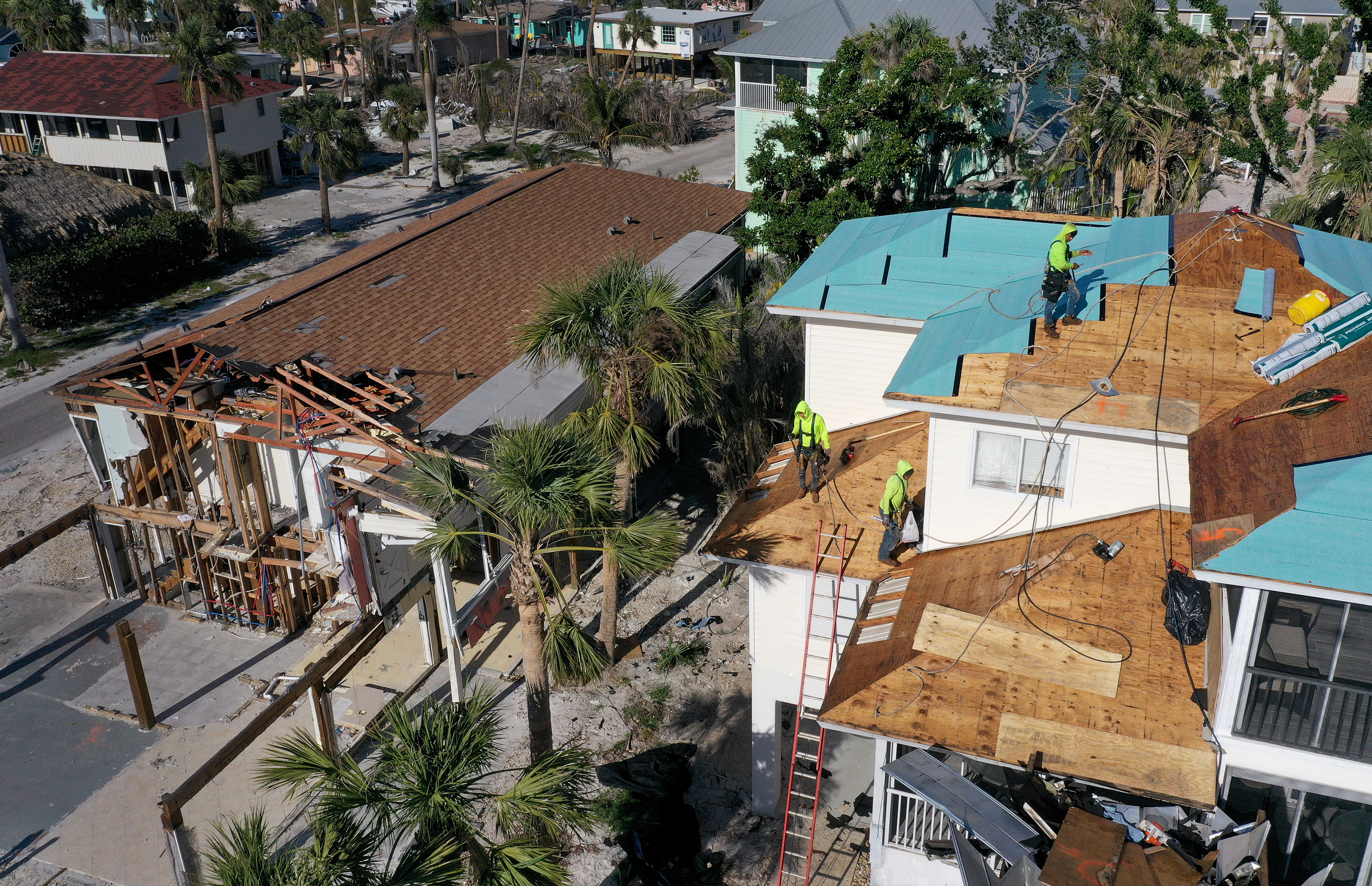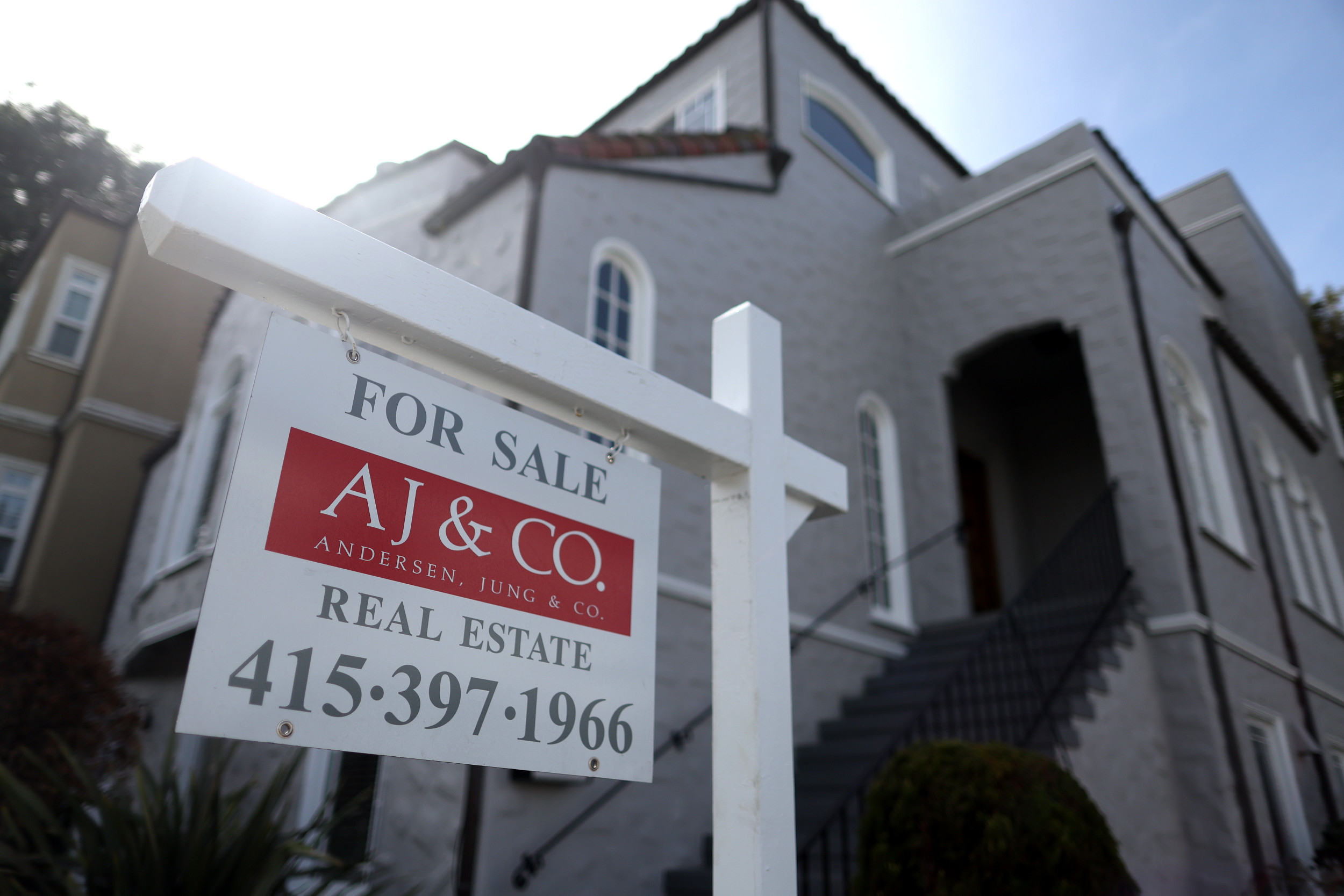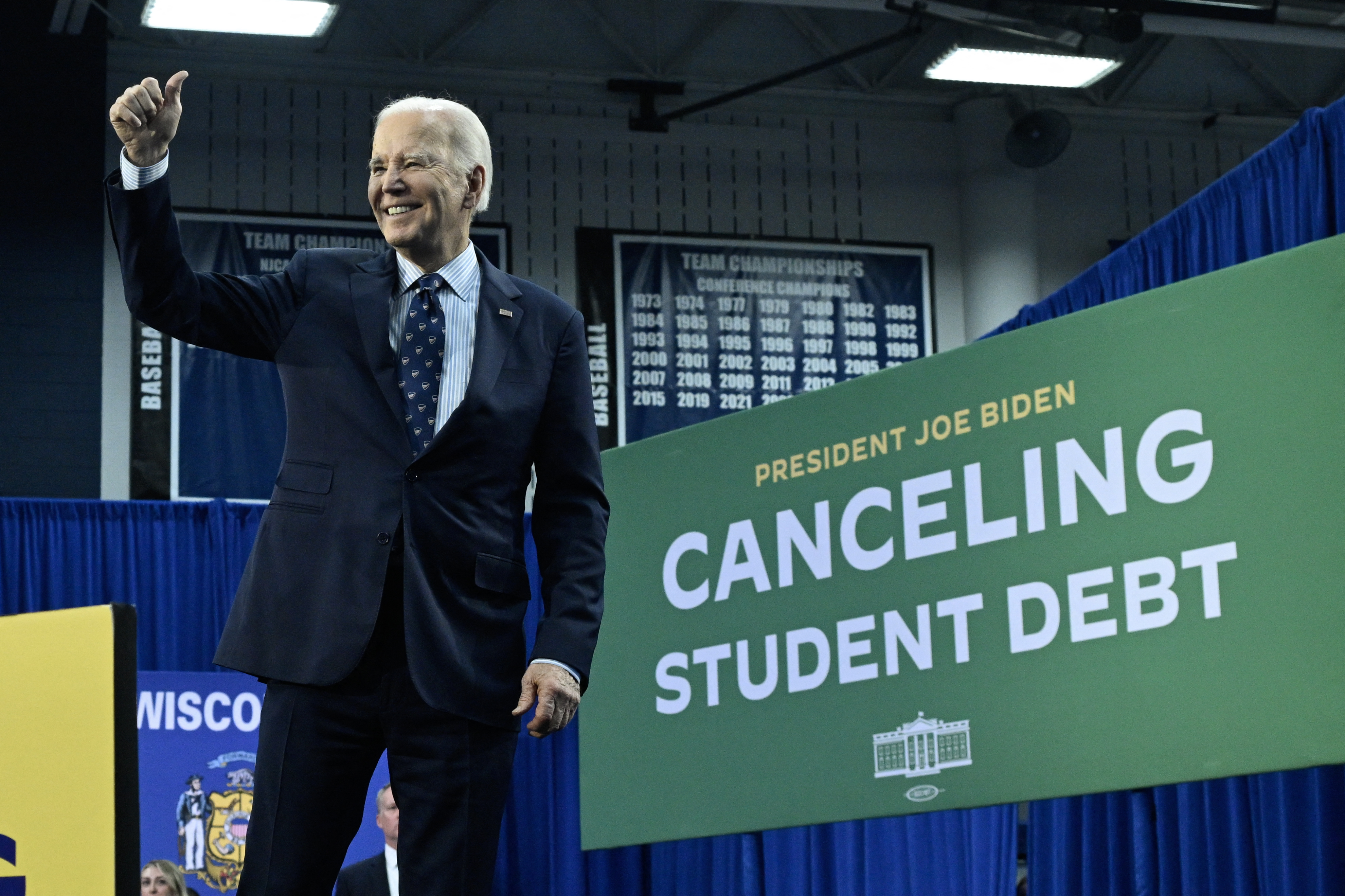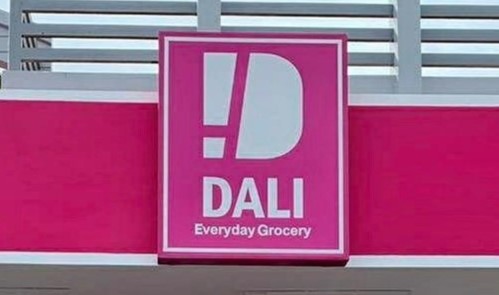
FLORIDA INSURERS 'STIFFING' CUSTOMERS AS NEARLY HALF OF CLAIMS UNPAID
Nearly half of all damage claims made by Florida homeowners with three of the state's large providers—Castle Key Indemnity, State Farm, and Castle Key Insurance—last year were not paid out, according to a recent analysis by Weiss Ratings.
Read more: Start Growing Your Emergency Fund Today
Castle Key Indemnity Company denied payment for 47.1 percent of the claims it closed last year, according to the independent insurance company rating agency—the highest share of all insurers in the state. State Farm Florida Insurance Company denied payment for 46.4 percent of claims closed last year, while Castle Key Insurance Company did the same for 46.0 percent of claims.
In response, State Farm told Newsweek that the data was "inaccurate, incomplete, and presented in a way that artificially underrepresented payments to our customers."
Florida homeowners filing claims with other companies didn't have much luck either: of 40 companies operating in the state analyzed by Weiss Ratings, half did not pay on at least 30 percent of claims. Two other smaller companies operating in the Sunshine State, Kin Insurance Network, American Integrity Insurance Company of Florida and PURE Specialty Exchange also failed to make a payment on over 40 percent of the claims they closed in 2023, respectively 44 percent, 43.9 percent and 40.5 percent.
Read more: How Much Is My House Worth? How to Determine Your Home's Value
Martin D. Weiss, founder of Weiss Ratings, told the Tampa Bay Times that the report showed "insurers in Florida are stiffing their customers" amid an insurance crisis that has seen costs soar for homeowners in the state.
Read more: Tips to Help Sell Your Home for the Highest Price
"In the wake of increasing property damage from storms and record insurance company bankruptcies, this high rate of claims denials is severely compounding the hardships for Florida homeowners," Weiss said in a press release accompanying the report.
"Over the last two decades, the Florida homeowner's insurance market has suffered from a convergence of natural, financial and regulatory disasters that set it apart from most other states: rising levels of storm damage, the highest failure rate the U.S., the departure of larger national companies, plus a regulatory environment and severely biased insurance company rating that obscured the weaknesses," Weiss told Newsweek.
"More recently, however, these factors are becoming a national trend, and we're beginning to see some insurers with homeowner's business nationwide that have equally worrisome denial rates."
But what's most baffling about the data, for Weiss, is that the companies with the highest rate of claims closed without payment in 2023 are not only some of the biggest in the Sunshine State, but some of the healthiest.
Allstate, one of the largest insurers in the Sunshine State, owns both Castle Key Indemnity and Insurance. State Farm Florida Insurance Company is a subsidiary of another huge insurer in Florida, State Farm.
"What's most surprising of all is that some of the companies in Florida with the highest denial rates do have the financial strength to afford to pay a much larger portion of their closed claims," Weiss said.
A spokesperson for State Farm told the Tampa Bay Times that Weiss Ratings' data were inaccurate and did not include the claims left open at the end of the year. Allstate said the rating agency's data didn't match their internal figures.
The company shared with Newsweek a statement previously sent to the Tampa Bay Times, saying: "As an organization, we take pride in our customer service and are committed to paying what we owe, promptly, courteously, and efficiently.
"With any claim, State Farm seeks to provide our customers all benefits to which they are entitled within the terms of the insurance policy. Many factors affect claim payouts including the type of loss and the amount of a customer's deductible or Hurricane Deductible. In some weather events, the cause of damage is flood, which is excluded from the homeowner policy. If an individual does not have a flood policy to cover that damage, the policyholder may file a claim with their homeowners insurer to obtain the paperwork to pursue disaster assistance from the federal government."
Mark Friedlander, of the Insurance Information Institute (Triple-I), told Newsweek that they found the Weiss Ratings report to be "based on unfounded allegations from a questionable source."
"The two major national insurers that were targeted are regarded as among the most highly rated companies in the industry when it comes to claims processing and customer service," he said. "Data cited in last week's report is inaccurate and no context was provided as to why a property claim may be closed without payment. Typically, this is due to a loss not being covered by the policy. For example, a flood damage claim would not be covered by a standard home or renters policy. This is a very common occurrence in Florida when it comes to storm loss claims."
The report doesn't offer an explanation of why these claims were closed without payments—reasons that could range from the policy not covering the damage claimed, the existence of duplicate claims, and the decision of the policyholder to withdraw the claim.
Weiss told Newsweek that, "although the data is conclusive in terms of the high denial rates, it does not provide reliable clues regarding the causes or consequences." According to Weiss, it's possible that insurers have cut back coverage significantly in recent years without properly disclosing the changes to homeowners when they purchase or renew their policies; companies are putting more pressure on their adjusters to find as many possible contract loopholes or excuses for denying claims; insurers are under growing financial pressure to deny claims because they underestimated, undercharged and/or under-reserved for storm damages; or companies are taking advantage of a lax regulatory environment to use this as a business strategy.
The report lacks information about how many claims Florida's insurer of last resort, Citizens Property Insurance Corporation, has closed without payment, as the state-sponsored entity failed to submit the requested data.
After several private insurers cut coverage across Florida or withdrew from the state entirely due to the increased risk posed by climate change in the past few years, Citizens has ballooned in size and now holds the single largest share of homeowners policies in the state.
Update 7/4/24, 2:50 a.m. ET: This article was updated to include comments from State Farm, Weiss Ratings and Triple-I.
2024-07-03T15:50:23Z dg43tfdfdgfd











